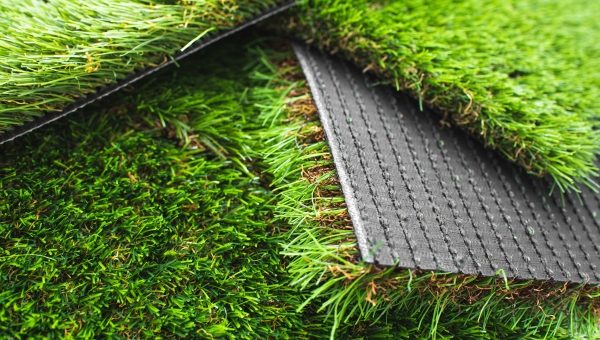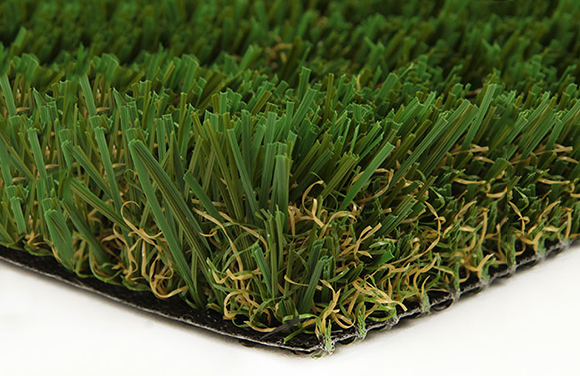Choose the Best Artificial Turf Companies Phoenix for Your House or Business
Choose the Best Artificial Turf Companies Phoenix for Your House or Business
Blog Article
Explore the Environmental Perks of Opting for Artificial Lawn Solutions
The fostering of fabricated turf services offers an engaging possibility to resolve pushing ecological obstacles. By considerably reducing water use and decreasing the application of harmful chemicals, these alternatives not just advertise sustainable landscape design but also safeguard neighborhood communities. The reduced carbon impact linked with reduced upkeep tasks contributes to a more sustainable approach to land administration. The ramifications of these benefits prolong beyond simple conservation initiatives, elevating concerns regarding their lasting effect on environment conservation and general environmental balance. Discovering these measurements discloses an intricate interaction worth thinking about.
Water Preservation Conveniences
One of the most significant benefits of artificial grass is its capability to conserve water. In comparison, synthetic grass does not need watering, considerably reducing the general demand for water resources.
By removing the demand for regular watering, synthetic grass adds to lasting landscape practices and helps mitigate the environmental effect of too much water usage. The conservation of water prolongs to the decrease of overflow, which can lead to soil disintegration and river air pollution.
In addition, the installment of synthetic grass permits home owners and districts to allocate water sources much more efficiently, concentrating on crucial usages such as drinking water and farming. The shift in the direction of synthetic grass not just advertises liable water use however likewise lines up with more comprehensive ecological goals focused on protecting all-natural resources.
As areas significantly prioritize sustainability, the water preservation benefits of synthetic grass offer a compelling situation for its adoption in household and business landscape design jobs.
Lowered Chemical Usage
The shift to artificial lawn significantly decreases the dependence on chemical therapies frequently used in natural turf maintenance. Conventional turf monitoring commonly entails the application of plant foods, pesticides, and herbicides to promote development and control parasites. These chemicals can posture threats to human wellness, regional wildlife, and the atmosphere, adding to soil and water contamination.
In contrast, fabricated lawn removes the demand for these damaging materials. By decreasing the release of synthetic compounds right into the ecological community, artificial grass advertises much healthier soil and water systems.
Additionally, the absence of chemical overflow related to artificial lawn installments assists safeguard regional waterways from pollution, supporting marine life and maintaining biodiversity. Phoenix turf companies. As areas increasingly prioritize lasting techniques, choosing synthetic grass provides a practical solution that lines up with ecological conservation objectives. Through this change, homeowner can delight in rich eco-friendly areas without endangering environmental health and wellness, leading the way for an extra lasting future
Lower Carbon Footprint

Furthermore, the setup of synthetic grass can cause substantial water conservation. like it All-natural grass require significant quantities of water for irrigation, which not just adds to the carbon footprint related to water removal and treatment but also stress neighborhood water resources. In contrast, synthetic grass needs very little upkeep, needing no watering, thereby significantly minimizing water usage and continue reading this its associated power prices.
In addition, the long life of synthetic grass adds to its reduced carbon influence. With a life-span of as much as 15 years or more, the requirement for regular substitutes is decreased, resulting in much less waste and lower energy usage in production and dealing with traditional yard options. In general, synthetic grass offers a lasting option for ecologically conscious landscape design.
Environment Preservation
Habitat conservation is a crucial factor to consider in the argument over landscape design selections, particularly when contrasting fabricated lawn to all-natural turf. Natural grass lawns commonly call for extensive maintenance, including the use of herbicides, fertilizers, and pesticides, which can detrimentally affect local communities. These chemicals can seep right into the dirt and rivers, damaging native flora and animals and interfering with regional habitats.
Artificial lawn eliminates the requirement for unsafe chemicals, consequently safeguarding neighboring wildlife and keeping the integrity of bordering communities. The installment of artificial grass can lead to the conversion of former grass areas into even more biodiverse landscapes, such as pollinator yards or native plant areas, which can support local wild animals.
Inevitably, the change to synthetic grass not just saves water and lowers upkeep initiatives yet also promotes an extra unified connection between human activities and the natural setting, advertising environment conservation in the process.
Long-Term Sustainability
Long-lasting sustainability is a vital variable in examining the advantages of synthetic lawn over traditional lawn yards. Among the most considerable benefits of synthetic grass is its toughness; it can last as much as 15-20 years with marginal maintenance, whereas all-natural grass calls for frequent reseeding and replacement. This durability minimizes the demand for consistent resources, such as water, fertilizers, and chemicals, which are vital for preserving a healthy and balanced yard lawn.
In addition, synthetic grass adds to a reduction in carbon exhausts related to yard treatment equipment. Standard yards frequently require gas-powered lawn mowers, leaners, and blowers, every one of which add to air contamination. Arizona artificial turf. On the other hand, synthetic grass gets rid of the need for such tools, advertising a cleaner setting
Moreover, the manufacturing of synthetic grass significantly makes use of recycled materials, boosting its sustainability account. As makers take on environment-friendly practices, the ecological impact of fabricated lawn proceeds to diminish.

Conclusion
The fostering of artificial turf solutions provides considerable environmental benefits, consisting of substantial water conservation, reduced reliance on dangerous chemicals, and a lower carbon footprint. Man-made turf help in protecting all-natural habitats by minimizing land disturbance and promoting lasting sustainability with the usage of durable materials. Jointly, these variables underscore the capacity of synthetic grass to contribute positively to ecological health and use a feasible alternative to traditional landscape design techniques in a significantly resource-conscious world.
In comparison, man-made lawn does not need watering, considerably minimizing the general demand for water resources. By minimizing the launch of artificial substances right into the ecological community, artificial grass promotes much healthier dirt and water systems.
Moreover, the installment of man-made grass can result in considerable water preservation. In contrast, artificial turf requires marginal maintenance, requiring no watering, therefore dramatically minimizing water use and its linked power costs.

Report this page